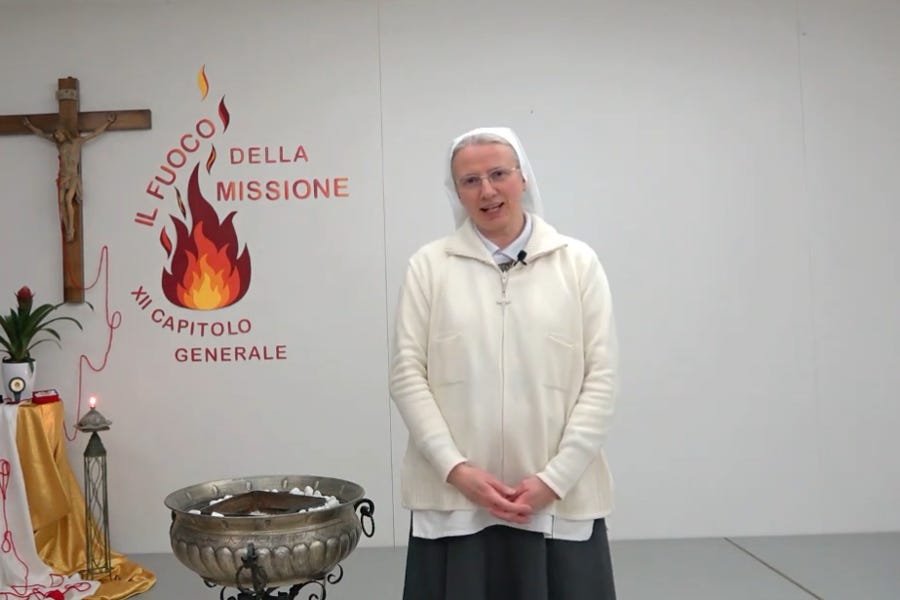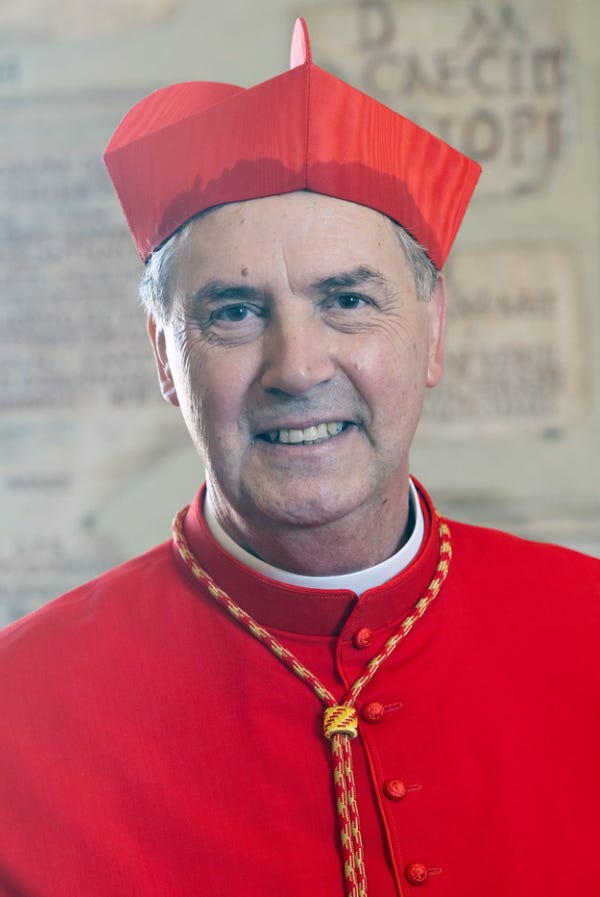Pope Francis appointed Monday Sr. Simona Brambilla, I.S.M.C., as prefect of the Vatican Dicastery for the Institutes of Consecrated Life and Societies of Apostolic Life, and Cardinal Ángel Fernández Artime, S.D.B., as pro-prefect of the same dicastery.

Brambilla’s Jan. 6 appointment marks the first time a woman will lead a Vatican dicastery. But it also raises questions about the nature of governance and authority in the Church.
Although Brambilla’s appointment is groundbreaking, it is unclear what kind of division of responsibilities there will be between the new prefect and the pro-prefect of the Dicastery for Institutes of Consecrated Life and Societies of Apostolic Life (DICLSAL), the Vatican department overseeing the world’s religious orders.
The 2022 apostolic constitution Praedicate Evangelium, which overhauled the Roman Curia, only mentions the figure of pro-prefect with regard to the Dicastery of Evangelization. It says: “The Dicastery for Evangelization is presided over directly by the Roman Pontiff. Each of the two sections is directed in his name and by his authority by a pro-prefect.”
The two pro-prefects of the Dicastery for Evangelization are Cardinal Luis Antonio Tagle, who oversees the Section for the First Evangelization, and Archbishop Salvatore Fisichella, who is responsible for the Section of New Evangelization.
But while Pope Francis presides directly over the Dicastery for Evangelization, DICLSAL is led by its prefect.
The pope may have deemed Artime’s appointment as pro-prefect necessary because the Spanish cardinal is a bishop and therefore exercises the power of orders.
Some governing functions reserved for the dicastery, such as the creation, merger, union, and suppression of religious institutes, and some clerical disciplinary matters, might require a bishop’s power of governance, which could mean that Fernández Artime was appointed to provide a kind of canonical executor function for such decisions.
There is an ongoing debate within the Church, driven by Pope Francis’ curial reforms and the global synodal process, over the connection between sacramental ordination and the power of governance, and to what extent Catholics who are not ordained can share in the exercise of spiritual authority.
Sr. Simona Brambilla was already the second-highest-ranking member of the dicastery, serving as its secretary since 2023 under then-prefect Cardinal João Braz de Aviz, who at the age of 77 has passed the typical retirement age for bishops.
Brambilla was born in Monza, northern Italy, on March 27, 1965. She became a nurse in 1986, before entering the Missionary Sisters of Consolata in 1988. She graduated with a licentiate in psychology from Rome’s Gregorian University in 1998.
In 1999, after making her final profession, she served as a missionary in Mozambique. She returned to Rome in 2002 to work as a professor at the Gregorian University’s Institute of Psychology, holding the post until 2006.
In 2011, she was elected superior general of the Missionary Sisters of Consolata, serving two terms until May 2023.
During that term, in 2019, Pope Francis named her as one of the first seven female members of DICLSAL. On Oct. 7, 2023, the pope appointed her secretary of the dicastery. She became the second woman to hold that rank in a Vatican department, after Sr. Alessandra Smerilli, F.M.A., secretary of the Dicastery for Promoting Integral Human Development.
In 2023, Francis named Brambilla a papal appointee to the synod on synodality, and in 2024 she became a member of the influential Ordinary Council of the General Secretariat of the Synod.

Ángel Fernández Artime was born Aug. 21, 1960, in Gozón-Luanco, northern Spain. He made his perpetual vows as a Salesian in Santiago de Compostela in 1984 and was ordained to the priesthood in León in 1987.
In 2009, he was named superior of the Salesian Province of South Argentina, based in Buenos Aires, where he came to know the future Pope Francis, then serving as Archbishop of Buenos Aires.
Fernández Artime was elected rector major of the Salesians in 2014 and confirmed for a second six-year term in 2020.
Pope Francis gave him the cardinal’s red hat on Sept. 30, 2023, in an unusual gesture, given that Fernández Artime was a priest, rather than a bishop, at the time. The honor led to speculation that he would receive a curial appointment.
Fernández Artime’s episcopal ordination took place on April 20, 2024. He stepped down as rector major of the Salesians Aug. 16.
During his 11-year pontificate, Pope Francis has increased steadily the number of women serving in prominent Vatican posts.
In 2014, he made Sr. Irma Luzia Premoli, superior general of the Comboni Missionary Sisters, the first female member of a Vatican dicastery after her appointment at the then-Congregation for the Evangelization of Peoples.
In 2016, he appointed Barbara Jatta as director of the Vatican Museums.
In 2019, he made Brambilla and six other religious sisters, most of them superior generals of congregations, members of the dicastery for consecrated life.
In 2021, he appointed Sr. Raffaela Petrini, F.S.E., as the secretary general of the governorate of the Vatican City State, a position typically held by a bishop.
And in 2022, Pope Francis named three women as members of the Vatican’s Dicastery for Bishops.




